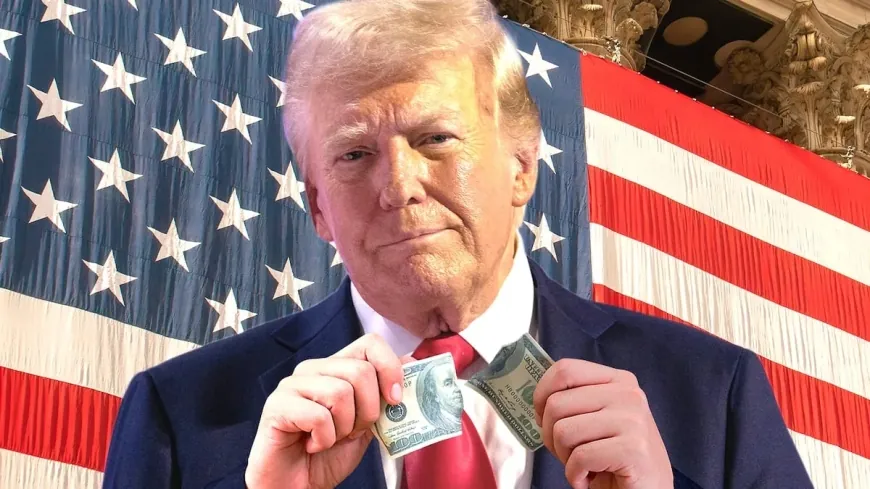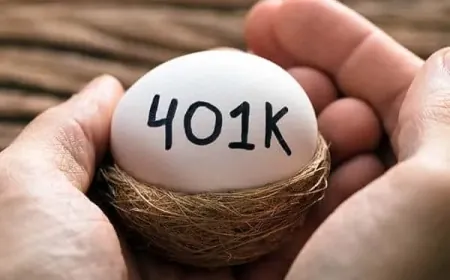Trump’s War on Indian Talent and Trade Is Backfiring on the U.S. Economy
Trump's war on Indian talent and trade is wrecking U.S. tech, healthcare, and education. America’s own future is now collapsing from the inside.

President Donald Trump’s second-term economic war is turning inward — and the latest casualty may be America itself. With sweeping new tariffs on Indian goods and harsh visa crackdowns targeting Indian professionals, Trump is taking aim at one of the United States’ most essential — yet often overlooked — lifelines: Indian talent and trade. But while the rhetoric is “America First,” the results may be anything but. From tech to healthcare, experts warn these moves could undercut the very sectors that keep the U.S. economy running.
From Silicon Valley to American hospitals, Indian professionals don’t just contribute to the U.S. economy — they sustainit. Trump's new tariffs, tightened visa policies, and adversarial rhetoric toward outsourcing may score short-term political points, but they risk unraveling the invisible infrastructure that Indian talent has built over decades.
Indian Talent Built Silicon Valley
The U.S. technology sector depends on Indian engineers. Period. More than 70% of H-1B visas — which allow U.S. companies to employ high-skilled foreign workers — go to Indian nationals. These are the people behind the algorithms that power Google Search, the cloud infrastructure of AWS, the AI research at Microsoft, and the backend code for countless American startups.
"If Indian engineers walked out of Silicon Valley tomorrow, the entire U.S. tech economy would seize," said a senior recruiter at a top-tier venture capital firm. "And that’s not hyperbole."
Trump’s administration has reintroduced scrutiny and limits on the H-1B program as of July 2025, capping visa issuances and introducing stricter compliance audits for firms employing foreign talent. Several startups have already relocated parts of their engineering teams to Toronto, Dublin, and Bangalore.
The broader risk is this: Indian talent may stop viewing the U.S. as the destination for career growth. "The signal from Washington right now is clear — 'We don’t want you,'" said Priya Narang, a former MIT AI researcher now working in Singapore. "So we’re building elsewhere."
Trump’s Medicine Tariffs on India Are Making U.S. Healthcare More Expensive
India supplies more than 40% of the generic drugs consumed in the United States — from life-saving cancer treatments to everyday blood pressure medications. That’s not a minor role — it’s a pillar of American public health.
Yet in July 2025, Trump’s administration imposed 15% tariffs on Indian pharmaceutical imports, citing the need to "repatriate medical manufacturing." The reaction was swift and chaotic:
-
Generic drug prices in the U.S. have already jumped 10–25% in the first month.
-
Pharmacies in rural states like Kentucky and Nebraska report shortages of common medications.
-
Indian pharma companies such as Sun Pharma and Dr. Reddy’s are suspending new export contracts.
"Trump thinks he's building a wall to protect American pharma. What he’s actually doing is driving up costs and causing shortages," said Dr. Leena Rao, a New Jersey-based health policy analyst. "We don’t have the factories or workforce to replace what India provides."
Indian Doctors Are Keeping Rural America Alive
One in seven doctors in the U.S. is of Indian origin. Over 80,000 Indian-American physicians work in the country, and they disproportionately serve underserved rural and urban areas.
Trump’s visa overhaul includes a new background check policy for international medical graduates, slowing visa approvals and green card applications. The result? Residency programs — especially in rural hospitals — are seeing up to 30% fewer placements.
"If we can’t bring in Indian doctors, we won’t have enough staff to keep emergency rooms open," said Dr. Rajiv Malhotra, director of a hospital network in West Virginia. "It’s not a theory — it’s already happening."
U.S. Schools Are Losing Indian Students — and the Future of Tech
Indian students are the largest group of international enrollees in U.S. universities, with over 325,000 currently studying in American colleges — mostly in STEM fields. But that number is plummeting.
Since April 2025, Indian visa approval rates have fallen sharply, amid new background check policies and a quiet freeze on F-1 renewals. Many Indian students are opting for Canada, Germany, and Australia instead.
This exodus isn’t just a blow to universities — it’s a blow to American research, tech innovation, and intellectual property.
"Indian students don’t just study here. They file patents, launch startups, and lead labs," said Dr. Teresa Klein, a former policy advisor at the National Science Foundation. "The loss is strategic, not just academic."
Trump Slaps Tariffs on India — and Americans Are Paying the Price
Trump’s August 2025 tariff package against India includes:
-
15% on pharmaceutical imports
-
20% on IT outsourcing services
-
10–25% on electronics, including chipsets and semiconductors
-
12% on textiles and automotive parts
In response, India has hit back with:
-
25% tariffs on U.S. agricultural exports
-
Suspension of key digital trade talks
-
Halting new defense-tech collaborations
Bilateral tensions are rising fast. Indian Foreign Minister S. Jaishankar warned in late July: "This is not a trade disagreement. It is a strategic rupture."
India’s Not Waiting — It’s Moving On
India’s economy is surging. With record-high foreign investment in 2025, homegrown startups like Zepto, Razorpay, and InMobi are expanding globally. Countries like Canada, the UK, and Australia are actively welcoming Indian tech workers and entrepreneurs with open immigration doors — a sharp contrast to Trump’s policies.
“We don’t need the U.S. to succeed anymore,” said Sidharth Menon, a Bengaluru-based fintech founder. “America is just one option — not the only one.”
While Trump ramps up tariffs and plays to his political base, experts say the long-term cost will fall squarely on America. By pushing away Indian talent and punishing Indian industries, the U.S. is handing global leadership to its competitors — and watching innovation walk out the door.
Trump’s Tough Stance on India Is Hurting America’s Future
President Trump’s aggressive policies against Indian talent and trade aren’t just hurting India — they’re threatening America’s own future.
Indian engineers and doctors make up the backbone of the U.S. economy and healthcare system. Over 70% of H-1B visas go to Indians, powering Silicon Valley innovations and startups that keep America competitive globally. Indian doctors fill critical gaps in rural hospitals, serving communities that would otherwise go without care.
Since Trump slapped tariffs on Indian pharmaceuticals this year, drug prices in the U.S. have surged by up to 25%, hitting ordinary Americans hard. Visa restrictions have forced thousands of talented Indian students and tech workers to seek opportunities in Canada, Australia, and Israel — countries with friendlier immigration policies and growing tech hubs.
Meanwhile, the U.S. continues to maintain a difficult and often fraught relationship with Pakistan — a country that, despite billions in aid, has been linked to ongoing security threats and instability. Unlike India, Pakistan offers little in terms of economic or technological partnership that could balance the risks Trump’s policies impose on America.
By alienating India, the U.S. is pushing away one of its strongest global partners and handing strategic advantages to rivals like China. American businesses face talent shortages, research slows, and consumers pay more for medicine and services.
Trump’s tough talk and tariffs may play well politically in the short term, but the fallout threatens to weaken America’s economy, innovation, and global standing for years to come.
Also Read: U.S. Announces New Import Tariffs on 66 Countries, Impacting Consumer Prices and Trade































































